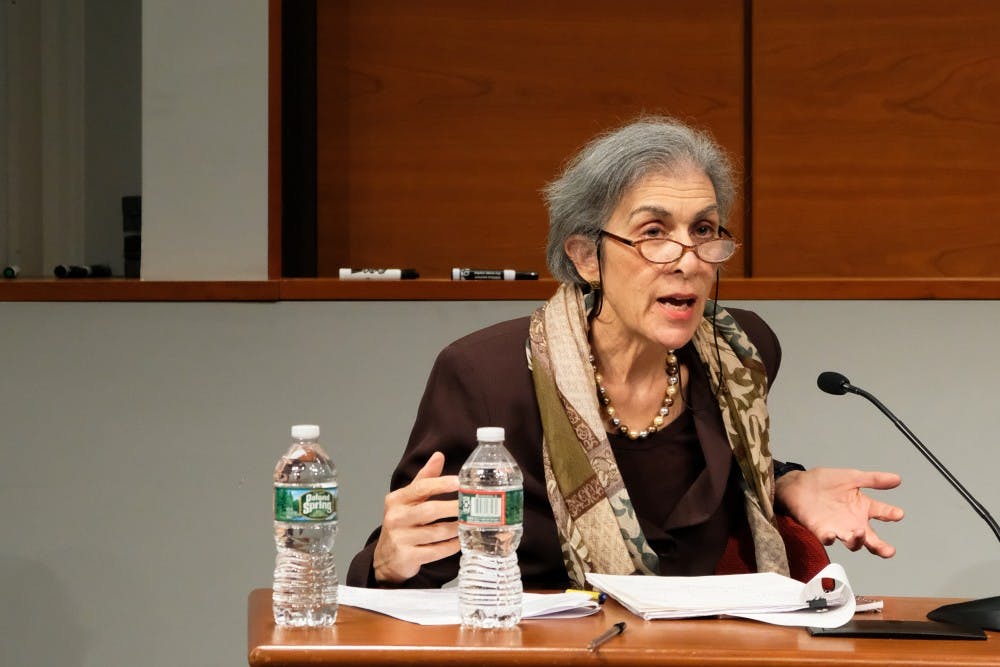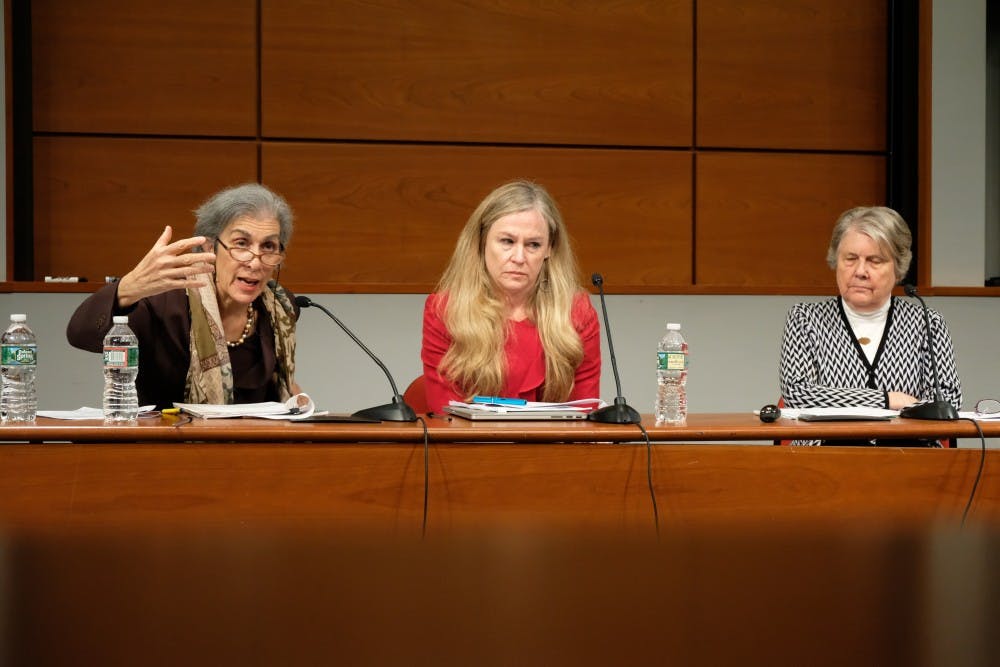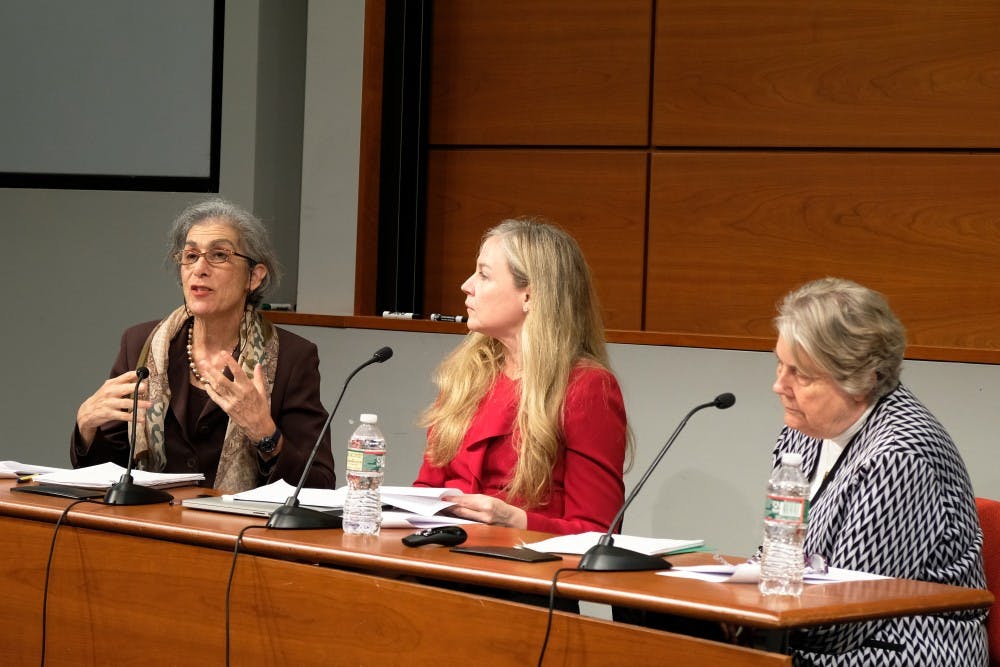
Penn Law School professor Amy Wax argued for the importance of traditional marriage values in ensuring children's future success at a Penn Law event on April 16, alongside fellow panelist and Co-director of the Center on Children and Families, Isabel Sawhill.
The debate — moderated by economics professor Petra Todd, who has published research on racial bias and drivers of children's future success — centered on the question of whether the institution of marriage should be revived for improving child outcomes. Sawhill argued for the improvement of economic policies and education in order to improve children's future outcomes.

Wax spoke eight months after the publication of her op-ed describing the “breakdown of bourgeois culture” in America. After the resurfacing of comments Wax made claiming black students rarely graduate top of their class, Penn Law Dean Ted Ruger banned Wax from teaching a mandatory first-year course. Most recently, Penn Trustee Emeritus and Penn Law School Overseer Paul Levy stepped down from his posts over the "treatment of Amy Wax."
While Wax and Sawhill both agree that marriage positively affects child outcomes due to a mixture of both economic and social factors, they discussed different visions for what should be done moving forward.
Wax argued that while economic decisions certainly play a causal role in outcomes, the bigger issue is that of culture. She said that academics promoting “pluralism and the demoralization of sexuality” are “living the 50s and talking the 60s.”
The readiness to raise a child, Wax added, is more about socialization within the family setting that encourages the “security, support, longevity, and endurance that is necessary.”
“We now have a plethora of people in our society who are virtually alone,” Wax said. "It is easy to tell people who are career-minded to wait but less so for people working service jobs that don’t have that trajectory."
According to statistics cited by both parties from the Pew Research Center, 72 percent of adults over the age of 18 in the United States were married in 1960 as opposed to 51 percent in 2010. Both speakers also cited a dramatic increase in the number of children born outside of marriage after 1960.

Sawhill said she is pessimistic about encouraging marriage as an institution among young people. She argued “strong demographic trends,” such as the decrease of marriage among millennials and minorities, are difficult to reverse.
Her suggestions include reducing the number of unplanned pregnancies through contraception and encouraging more career and technical education, with an overall approach of focusing on providing opportunities for children themselves.
The event was hosted by the Penn American Enterprise Institute Executive Council. According to the event organizer and College sophomore Barry Plunkett, planning for the event started before the publication of Wax’s op-ed and was set to take place in December until another panelist had to reschedule.
He added that he was prompted to hold the debate after having conversations with his more conservative friends and “wanted to help generate conversation between those on the right and the left.”
Wharton freshman Saxon Bryant said that while he enjoyed hearing about a topic not often discussed, he wished “there would have been more substantive discussion on ways to move forward with policy.”
He added that both took a stance that wasn’t “normative” regarding family policy, but he said he wished there was less debate on the status quo and more discussion on what the students could do moving forward.
Wharton freshman Jordan King said he went to learn about Amy Wax's beliefs.
“I wanted to see that so she’s not in my mind as some woman who said some crazy stuff,” he said, “but to see what her actual ideologies and policies are.”
The Daily Pennsylvanian is an independent, student-run newspaper. Please consider making a donation to support the coverage that shapes the University. Your generosity ensures a future of strong journalism at Penn.
Donate




